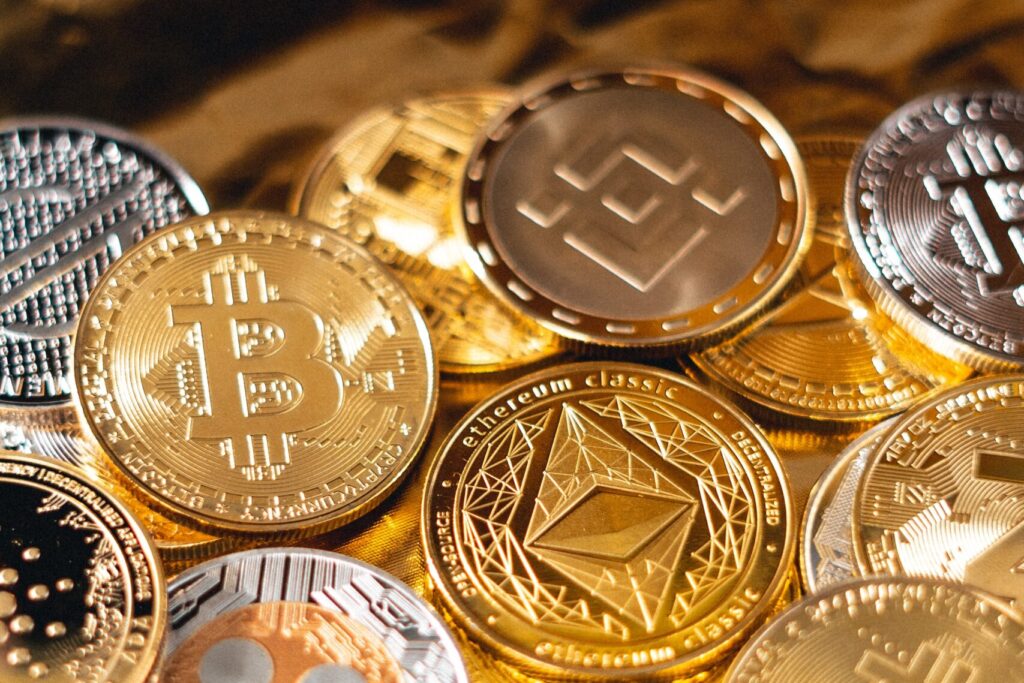What’s happening
Decentralized Finance (DeFi) is a financial system that operates on a network of computers rather than a single server. DeFi is a new digital financial infrastructure that eliminates the need for a central bank or government agency to authorize financial transactions. DeFi is inextricably linked with blockchain, the decentralized, immutable public ledger on which Bitcoin and other cryptocurrencies are based, which allows all computers or nodes on a network to keep a copy of the transaction history. The concept is that no single entity has control over or can alter the transaction ledger. DeFi’s central concept is to codify the intricate financial services and products that are now provided by legacy financial institutions and turn them into self-executing code. DeFi reduces the usage fees that banks and other financial institutions impose. People can quickly transfer money by using a secure digital wallet that they keep their money in. Anyone with an internet connection can use DeFi. The overall value of assets deposited in transactions has risen from $700 million in December 2019 to over $200 billion at the beginning of 2022. Beyond crypto traders, legacy financial institutions understand the need to get in front of this technology. DeFi for our business transactions increases cash flow by decreasing risk, hassle, costs, and time to cash.
What’s causing this to happen
Accessibility, security, and dependability problems are the key causes of banking institutions’ inability to serve more than 1 billion customers. DeFi promotes financial inclusion by ensuring the 1.7 billion people worldwide who don’t have a bank account and nearly half of the world’s population without an active bank account can access the same benefits, such as paying bills, accessing insurance, and creating a pension pot, as those participating in traditional finance. Blockchain technology has been designed to be accessible to anyone with a smartphone. In countries such as Venezuela, where exchanging currencies is difficult, it has also allowed people to protect their savings from inflation by exchanging their fiat for crypto. There are no physical borders or geographical limits here. While the initial focus of these platforms was on regular investors, new approaches are also being developed to enable institutional investors to easily enter the decentralized market, keep a close eye on their investments, and comply with all applicable security and regulatory standards. The yield is one of decentralized finance’s most alluring features for investors. In DeFi, all transactions take place peer-to-peer without the need for any middlemen. The lender can take practically all of the yield if all the intermediary procedures are removed. When compared to a bank, a typical savings account may return 0.5% per year and lends 10% on loaning customers’ money. DeFi’s main cost is the upkeep of the website, which has attracted users looking to maximize their returns. DeFi is free from outside influence as it doesn’t have a central bank or organization. It can make protocols and dApps (decentralized applications) integrate much deeper into other financial solutions and services, making it easy, and giving control over finances to day to day users.
What could happen next
DeFi is a rapidly evolving space and has a bright future. DeFi has the potential to revolutionize the financial system, and it is worth watching closely as it continues to develop. For DeFi to become a true competitor to traditional finance, it must reassure customers that their money is just as safe in DeFi as it is in a bank. Over the last few years, there have been some high-profile incidents where online wallets have been hacked. The DeFi sector has developed innovative solutions, with some DeFi platforms equipped with bank-grade security software, providing reassurance to DeFi users that their money is safe. Within the next decade, payments will be made with a digital wallet composed of a combination of different assets, such as fiat currency (USD), Bitcoin, and digital collectibles (NFTs). Even tokenized versions of the equity in a property could be used to pay for necessities in the future.
Regulations vary widely around the world, with some governments embracing cryptocurrencies and others banning them outright. According to experts, the problem for regulators is to create regulations that minimize conventional financial risks without reducing innovation. Policymakers in the US have said they are gradually going to regulate cryptocurrencies and the developing DeFi market. Gary Gensler, the chairman of the U.S. Securities and Exchange Commission (SEC), has compared the cryptocurrency industry to a ‘wild west’ and urged Congress to give the SEC more authority. Stronger rules for stablecoins have been demanded by both Treasury Secretary Janet Yellen and Federal Reserve Chairman Jerome Powell. The majority of Bitcoin mining occurs in China, which has intensified its efforts to stifle cryptocurrencies. As soon as Chinese authorities declared a complete ban on all cryptocurrency transactions and mining beginning in September 2021, the value of various cryptocurrencies fell sharply. According to the U.S. Law Library of Congress, dozens of other countries have attempted to restrict the use of digital assets, while eight more have outright banned cryptocurrencies (Algeria, Bangladesh, Egypt, Iraq, Morocco, Nepal, Qatar, and Tunisia). But up until now, the vast majority of nations have followed a fairly limited course of action. The UK government has set up a task force to explore the potential benefits of DeFi. The Bahamas has established a regulatory sandbox for DeFi projects. The sandbox allows DeFi projects to test their products and services in a controlled environment. This will help to ensure that DeFi projects are compliant with regulations and that they are safe for consumers. It is likely that more countries will adopt a more supportive approach towards DeFi in the coming years.
Resources :
- Cryptocurrencies, Digital Dollars, and the Future of Money https://www.cfr.org/backgrounder/cryptocurrencies-digital-dollars-and-future-money?gclid=CjwKCAjwhJukBhBPEiwAniIcNReueCZSej4mTioXFOctORucrdHMVaZtZoKMFq7B8OaGjzyOx1sWmhoCtBoQAvD_BwE#chapter-title-0-6
- Is The Future Of Finance Decentralized? https://www.forbes.com/sites/forbesbusinesscouncil/2022/06/28/is-the-future-of-finance-decentralized/?sh=24f212de7744
- DeFi Revolution: The Factors Driving The Growth Of Decentralized Finance https://www.finance-monthly.com/2022/03/defi-revolution-the-factors-driving-the-growth-of-decentralised-finance/
- Is DeFi the Future of Finance? https://firstbridge.io/blog/decentralised-finance-(defi)/is-defi-the-future-of-finance


